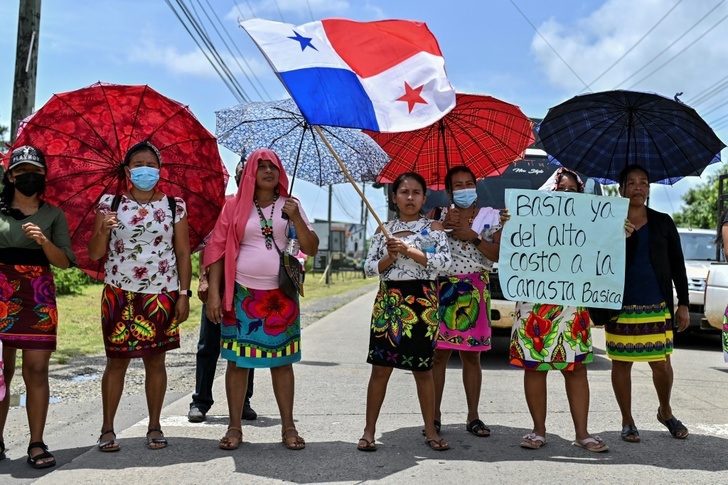The Panamanian government and protesters were set for a fresh round of negotiations Thursday to end more than two weeks of living cost protests that have interrupted food supplies and harmed the economy.
Protesters demanding lower fuel, food and medicine prices have blockaded the crucial Pan-American Highway and other major roads with stalled trucks and burning tires, and some have clashed with police.
On Sunday, the government and some protest leaders announced a deal to end the crippling expression of anger in the country of 4.4 million people.
But on Monday, there were fresh roadblocks and marches as other groups rejected the deal and said they had not been consulted.
As the roadblocks and marches persisted this week, the government agreed to a new round of talks to be mediated by the Catholic Church.
The parties were set to meet Thursday in the city of Penonome, some 150 kilometers (93 miles) southwest of the capital Panama City.
On the protesters' side will be the Anadepo alliance of civic groups, labor unions and representatives of Indigenous communities.
- 'Concrete answers' -
"We hope that the government will come with concrete answers to the fundamental needs of the population," said Saul Mendez, secretary general of the Suntracs construction workers' union that took part in the revolt.
The protesters are demanding lower prices on basic consumer goods, fuel, energy, medicines, and more spending on public education and healthcare.
They also want urgent action against corruption amid growing public concern about high official salaries and government waste in a time of growing economic hardship.
Despite its dollarized economy and impressive growth figures, Panama has one of the world's highest rates of social inequality, with poor access to health services, education and clean drinking water in some areas.
The demonstrations have triggered severe food and fuel shortages in some parts of the country, and the business sector says some $500 million has been lost.
On Wednesday, a convoy of some 200 trucks bringing much-needed food to Panama City with an escort of police and Suntracs members, was held up at a roadblock.
Suntracs had described the caravan as a "humanitarian" delivery, and unions later denied they were responsible for its holdup, blaming unspecified "thugs."
The police said it would ensure the load arrives safely on Thursday.
The government agreed over the weekend to reduce the price of petrol to $3.25 per gallon after another cut announced last week -- to $3.95 from $5.20 per gallon in June -- was not enough to appease the demonstrators.
On Tuesday, the government said it was committed to dialogue with a view to "promoting social peace and the common good."
jjr/mav/ll/mlr/md
© Agence France-Presse
Your content is great. However, if any of the content contained herein violates any rights of yours, including those of copyright, please contact us immediately by e-mail at media[@]kissrpr.com.
Source: Story.KISSPR.com

